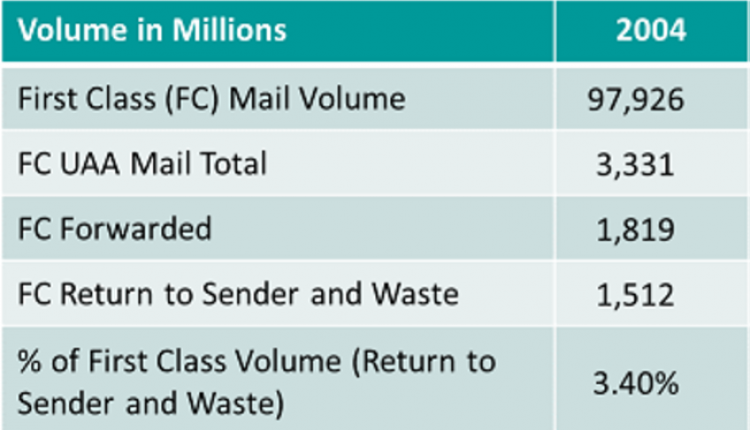"I believe fundamental honesty is the keystone of business." Harvey S. Firestone
"To be trusted is a greater compliment than to be loved." George MacDonald
We face an on-going challenge to building a trustworthy team that reliably serves our key stakeholders. The starting place to building a trustworthy team is to have it led by a trustworthy leader - you! How can we develop a higher level of trustworthiness for ourselves and our teams? Let me share some ideas, largely based on the work of Dr. Robert Hurley - a highly respected professor, consultant, and former manager.
Six Keys to Building Trustworthiness
Here are the important six keys to build trustworthiness:
1) Create similarities: establish common values and a common identity. Research has shown that we tend to trust people we think are similar to us and share our values. High-trust leaders and high-trust organizations create bonds of trust by developing and gaining commitment to common values and beliefs.
My company (Portland General) years ago established a core set of values that we call "Guiding Behaviors." These shared values have served us well over the years and saw us through challenging times such as the collapse of our one-time parent company - Enron. Here are PGE's "Guiding Behaviors:"
Be Accountable
Dignify People
Earn Trust
Team Behavior
Positive Attitude
Make the Right Thing Happen
Another tactic to build a common identity is to encourage people on your team to know each other as people - not just as professionals. Look for common experiences and interests that can help build a sense of camaraderie.
2) Align interests with those whose trust you want. It is much easier to trust people that we feel will serve our interests. When interests are well aligned, it is much easier to trust. To build trust, start by clarifying and aligning stakeholder interests and promote those interests in a fair manner.
3) Develop benevolent concern. People tend to trust those that care about their welfare - those that demonstrate a benevolent character. If you want to earn trust, demonstrate that you will do the right things for others even if it puts you at risk. John Maxwell was right on when he said "people don't care how much you know until they know how much you care".
Jim Collins in his classic book Good to Great refers to the most effective leaders as "Level 5." Level 5 leaders are driven and at the same time humble. Their motivation is not self-gratification but building an organization bigger than themselves. Being devoted to others and to a larger mission at one's own expense breeds trust and loyalty.
4) Develop and demonstrate capability to deliver on your promises. We need to deliver on our commitments to develop trustworthiness. Want to earn trust? Prove that you can reliably deliver on promises and don't make promises that you cannot keep. Remember the principle of "under promising and over delivering."
People are looking for leaders that know where they are going, and can instill confidence that the team can be successful if they stay focused. To build confidence and trust a leader must:
· Think strategically about the future and anticipate change.
· Break changes down into manageable initiatives that can be implemented over time.
· Stay focused and execute.
· Mobilize groups of people in a change process.
· Develop and maintain good relationships.
An important element of maintaining trust is to be self-aware and humble. When leaders are comfortable enough to acknowledge areas where they are not competent and then delegate and empower others to compensate they build trust.
5) Create a track record of predictability and integrity. To earn trust we must have a predictable pattern in how we act. An important part of predictability is integrity - honoring your word. High-trust managers always try to honor their word - and if they fail to do so they apologize and make sure it does not become a habit. Integrity also includes always doing the right thing - even if it costs you personally. As respected Senator Alan K. Simpson said, "If you have integrity, nothing else matters. If you don't have integrity, nothing else matters."
6) Communicate - and do it clearly and openly. I appreciate the advice I received from Portland General's highly respected CEO Peggy Fowler several years ago. She said there were three keys to being a great leader and manager: 1) Communication, 2) Communication and 3) Guess what? Communication.
As a general principle it is better to over communicate versus to under communicate. If we fail to communicate adequately the gap is filled by the grapevine (i.e. rumor mill) - and the rumor mill is invariably negative and demoralizing. Here are Dr. Hurley's five keys to being a trustworthy communicator:
· Share information
· Tell the truth
· Admit mistakes
· Give and receive constructive feedback
· Maintain confidentiality
Our teams will better serve our stakeholders if operating in a culture of trustworthiness. The key to developing a culture of trust is for us as leaders to be trustworthy ourselves. The road to being trustworthy is not always an easy one, but it's the right one for us to be on. Good luck to you as you pursue building greater trustworthiness in your team and in you as the leader!
Wes Friesen, MBA, CMDSM, MDC, EMCM, ICP, CCM,CMA, CM, CFM, APP, PHR is the Manager of Billing, Credit and Special Attention Operations for Portland General Electric, a utility in Portland, Oregon that serves over 825,000 customers. Wes teaches university classes and is a featured speaker at national Conferences like MAILCOM, National Postal Forum, FUSION and others. Wes would love to hear your feedback and article ideas and can be contacted at Wes.Friesen@pgn.com. Check out his personal website for free information at www.wesfriesen.com.
"To be trusted is a greater compliment than to be loved." George MacDonald
We face an on-going challenge to building a trustworthy team that reliably serves our key stakeholders. The starting place to building a trustworthy team is to have it led by a trustworthy leader - you! How can we develop a higher level of trustworthiness for ourselves and our teams? Let me share some ideas, largely based on the work of Dr. Robert Hurley - a highly respected professor, consultant, and former manager.
Six Keys to Building Trustworthiness
Here are the important six keys to build trustworthiness:
1) Create similarities: establish common values and a common identity. Research has shown that we tend to trust people we think are similar to us and share our values. High-trust leaders and high-trust organizations create bonds of trust by developing and gaining commitment to common values and beliefs.
My company (Portland General) years ago established a core set of values that we call "Guiding Behaviors." These shared values have served us well over the years and saw us through challenging times such as the collapse of our one-time parent company - Enron. Here are PGE's "Guiding Behaviors:"
Be Accountable
Dignify People
Earn Trust
Team Behavior
Positive Attitude
Make the Right Thing Happen
Another tactic to build a common identity is to encourage people on your team to know each other as people - not just as professionals. Look for common experiences and interests that can help build a sense of camaraderie.
2) Align interests with those whose trust you want. It is much easier to trust people that we feel will serve our interests. When interests are well aligned, it is much easier to trust. To build trust, start by clarifying and aligning stakeholder interests and promote those interests in a fair manner.
3) Develop benevolent concern. People tend to trust those that care about their welfare - those that demonstrate a benevolent character. If you want to earn trust, demonstrate that you will do the right things for others even if it puts you at risk. John Maxwell was right on when he said "people don't care how much you know until they know how much you care".
Jim Collins in his classic book Good to Great refers to the most effective leaders as "Level 5." Level 5 leaders are driven and at the same time humble. Their motivation is not self-gratification but building an organization bigger than themselves. Being devoted to others and to a larger mission at one's own expense breeds trust and loyalty.
4) Develop and demonstrate capability to deliver on your promises. We need to deliver on our commitments to develop trustworthiness. Want to earn trust? Prove that you can reliably deliver on promises and don't make promises that you cannot keep. Remember the principle of "under promising and over delivering."
People are looking for leaders that know where they are going, and can instill confidence that the team can be successful if they stay focused. To build confidence and trust a leader must:
· Think strategically about the future and anticipate change.
· Break changes down into manageable initiatives that can be implemented over time.
· Stay focused and execute.
· Mobilize groups of people in a change process.
· Develop and maintain good relationships.
An important element of maintaining trust is to be self-aware and humble. When leaders are comfortable enough to acknowledge areas where they are not competent and then delegate and empower others to compensate they build trust.
5) Create a track record of predictability and integrity. To earn trust we must have a predictable pattern in how we act. An important part of predictability is integrity - honoring your word. High-trust managers always try to honor their word - and if they fail to do so they apologize and make sure it does not become a habit. Integrity also includes always doing the right thing - even if it costs you personally. As respected Senator Alan K. Simpson said, "If you have integrity, nothing else matters. If you don't have integrity, nothing else matters."
6) Communicate - and do it clearly and openly. I appreciate the advice I received from Portland General's highly respected CEO Peggy Fowler several years ago. She said there were three keys to being a great leader and manager: 1) Communication, 2) Communication and 3) Guess what? Communication.
As a general principle it is better to over communicate versus to under communicate. If we fail to communicate adequately the gap is filled by the grapevine (i.e. rumor mill) - and the rumor mill is invariably negative and demoralizing. Here are Dr. Hurley's five keys to being a trustworthy communicator:
· Share information
· Tell the truth
· Admit mistakes
· Give and receive constructive feedback
· Maintain confidentiality
Our teams will better serve our stakeholders if operating in a culture of trustworthiness. The key to developing a culture of trust is for us as leaders to be trustworthy ourselves. The road to being trustworthy is not always an easy one, but it's the right one for us to be on. Good luck to you as you pursue building greater trustworthiness in your team and in you as the leader!
Wes Friesen, MBA, CMDSM, MDC, EMCM, ICP, CCM,CMA, CM, CFM, APP, PHR is the Manager of Billing, Credit and Special Attention Operations for Portland General Electric, a utility in Portland, Oregon that serves over 825,000 customers. Wes teaches university classes and is a featured speaker at national Conferences like MAILCOM, National Postal Forum, FUSION and others. Wes would love to hear your feedback and article ideas and can be contacted at Wes.Friesen@pgn.com. Check out his personal website for free information at www.wesfriesen.com.












